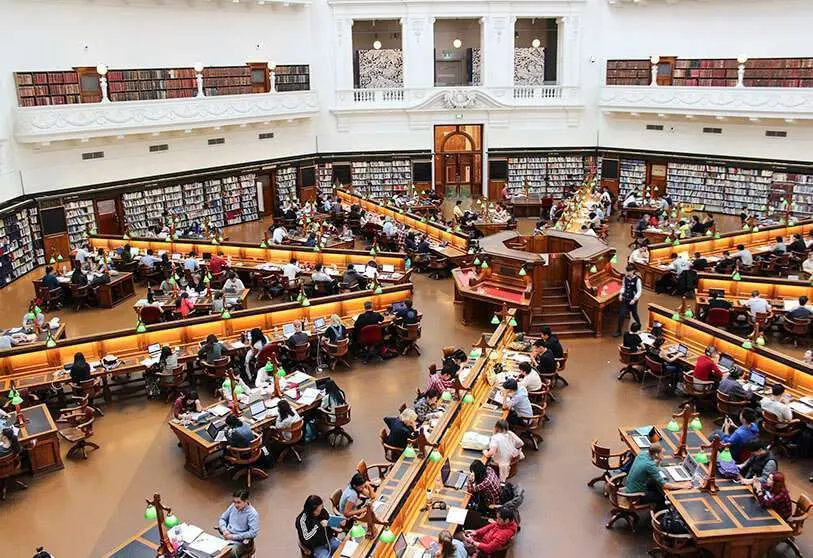University Chaos

The hecatomb of the COVID-19 pandemic has seriously altered all areas of life in Spain, including the field of education, both school and university. The educational structure of the national government had already been formally transformed before the onset of the crisis that took place when the second government of Pedro Sánchez was formed. In the exchange of ministerial badges, a portfolio was to be offered to a member of "En común-Podemos". The person chosen was Professor of Sociology, Manuel Castell, and to make room for him in the Government, the Universities portfolio was separated from the Research portfolio and a ministerial department with very limited powers was created. Given that education "in toto" had previously been transferred to the Autonomous Communities and that the Universities enjoyed their own autonomy, the work of Professor Castell was reduced to the issue of university degrees valid throughout Spain and little else.
I don't know if it was due to this scarcity in his competencies or to the belief that he was on a sabbatical, the new and limited Minister of the branch has been missing in action, to the point of being considered -according to the polls- the least known member of the Government, and it is obvious that there are unknown people in this macro-government of 22 luminaries, and that we have to resort to Wikidepia to find out who is who. Castell has " Pontius Pilates " washed his hands of the problem with the closure of the academic year in universities throughout Spain, leaving it in the hands of each of the universities. He should have dictated some guiding criteria and tried to reach a consensus with the Council of Rectors on the closing of the complicated academic year, but he has not succeeded, if he has tried at all. All his energy has been concentrated on bringing to public attention a draft decree for the reform of the University to incorporate business, a commendable objective, although the timing is not exactly right.
University students have been baffled and immersed in the greatest uncertainty regarding their immediate future, as has been made clear in an open letter from a student from the Complutense University of Madrid, Alejandro Guzón, published in the newspaper "ABC", under the title "They demand more from us than when the classes were face-to-face". According to the correspondent, the first days after the declaration of the State of Alarm were full of uncertainty because they did not know what to do and did not receive any answers from the Universities about continuing the course. The different faculties had not made it easy for them and the measures finally adopted were suffocating, because they were required to do more than when they had face-to-face classes, despite the fact that most of the professors had switched to giving -through Internet- only one or two classes a week, instead of the usual three. They had to prepare their own material and follow the normal pace, and the teachers were giving them more and more work They intended to quit teaching in a month and test them for the whole programme in June-July, without having explained the subject for more than three weeks.
I can confirm the legitimate concerns expressed by the student Guzón, in my capacity as grandfather of two grandchildren who are studying in Madrid universities: one in the Complutense and the other in the Autónoma. For a long time, the respective Faculties have not given any sign of life and, when they finally decided to inform the students via the Internet, they did so in an incomplete and unsatisfactory manner. Following the practice of passing on the "hot potato", the minister passed it on to the Rectors' Council, the latter to the Deans of the Faculties, and the latter to the professors, who acted - who acted, because some of them were silent in response - in accordance with their loyal knowledge and understanding. University "kingdoms of Taifa" have been created with autonomous emirs who do or do not do as they please. Some have given theoretical classes via the intranet and have commissioned a multitude of works and practical cases, in many cases on subjects that have not been explained. In short, an authentic university chaos in line with the generalised chaos that reigns in the whole of Spain.
As a university professor I feel ashamed and shocked, because I consider what is happening to be very unserious and not in keeping with the Academy. I understand that the situation is extremely complicated, that it has overtaken all institutions and that it is not easy to solve. It is not a question of giving a general approval, as requested by the Students' Union and to which the Minister of Education, Isabel Celá, seems to be receptive in her field of school education. The Minister of Universities does not know, does not answer. Classes should be maintained as long as possible and questions should be asked during exams, especially about the subjects explained during face-to-face classes.
There has been widespread misconduct and precious time has been lost that will be very difficult to make up. Reasonable formulas must be sought that respect academic rigor and prestige with the ethical duty of not causing unnecessary harm to university students, who are being most harmed by the anomalous situation. In view of the exceptional nature of the concurrent circumstances, we must try to carry out a "dressing exercise" with the minimum guarantees in order to save the prestige of the university festival, and to leave the bulk of the bullfighting for the next course, if the coronavirus allows it.

